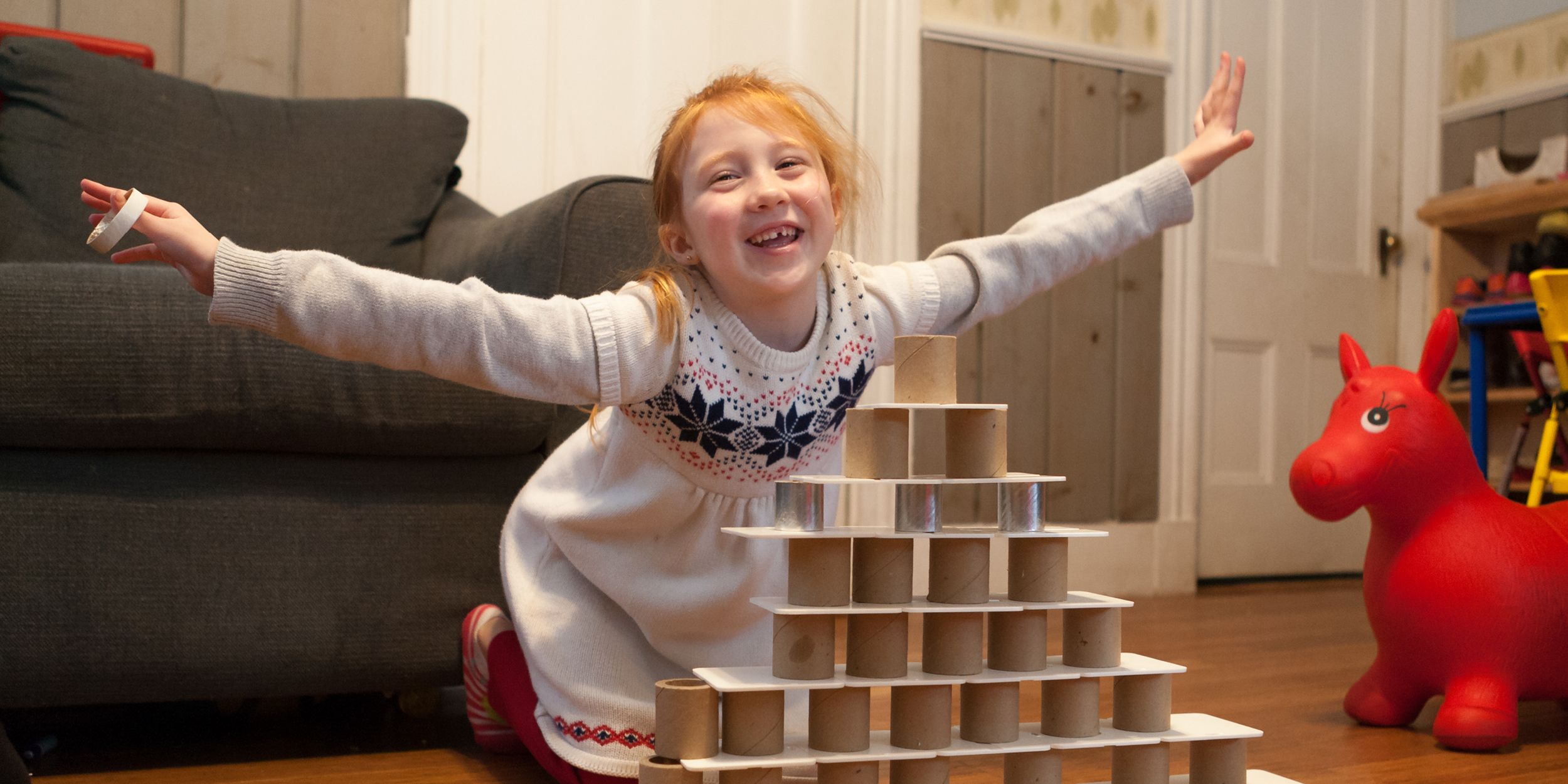Study Finds Digital Media Support Early Learning

Give a young child a stack of blocks, and before long they will be making a tower, a zoo, or an elaborate house—no instructions needed. But what happens when their creations fall apart? How do they solve the problem? By tapping into computational thinking (CT) skills.
CT skills help people effectively frame and solve problems. Later in life, CT skills are vital to career readiness and success. But early on, children need and use CT skills to learn how to read, do mathematics, and work through challenges. How can families support their young children in developing CT skills at home?
A recently completed study conducted by EDC and SRI researchers is among the first to show that digital media can play a positive role in helping parents boost their young children’s CT skills.
Our study examined an intervention in which families from low-income households across the United States engaged their 4- and 5-year-old children in watching Work It Out Wombats! videos and using related games and resources. After eight weeks, these children took an assessment that compared their learning with peers who did not participate in the intervention.
Among our findings:
- Higher scores for children who used Work It Out Wombats! Children who used Work It Out Wombats! resources had significantly higher scores on a sequencing assessment than peers who did not use the resources. Sequencing is a key part of CT that helps children figure out the order of activities needed to accomplish a task.
- Other important growth. Parents who participated in the study reported they saw growth in their children’s problem-solving and organizational skills. They also noticed positive changes in their children’s attitudes toward challenging situations.
Work It Out Wombats! is a multi-platform series that was produced by GBH Kids and Pipeline Studios for PBS KIDS. The series was designed to help families build children’s critical-thinking, computational-thinking, problem-solving, and persistence skills. In each episode, the wombats tackle a challenge together using a blend of CT skills, problem-solving, creativity, and persistence.
“This brief low-cost intervention had a significant impact,” said EDC senior researcher Emily Relkin, who led the study. “In addition, our Work It Out Wombats findings add to a large body of research by EDC, SRI, and others that demonstrates the powerful role well-designed media plays in supporting young children’s learning both at home and at school.”
Relkin and colleagues conducted the study as part of the Ready To Learn Initiative—a partnership between the Corporation for Public Broadcasting and the Public Broadcasting Service funded by the U.S. Department of Education.
EDC’s 19-year evaluation of Ready To Learn has found that high-quality, well-designed media, including programs, games, and podcasts, support children’s early literacy learning and early STEM learning.






